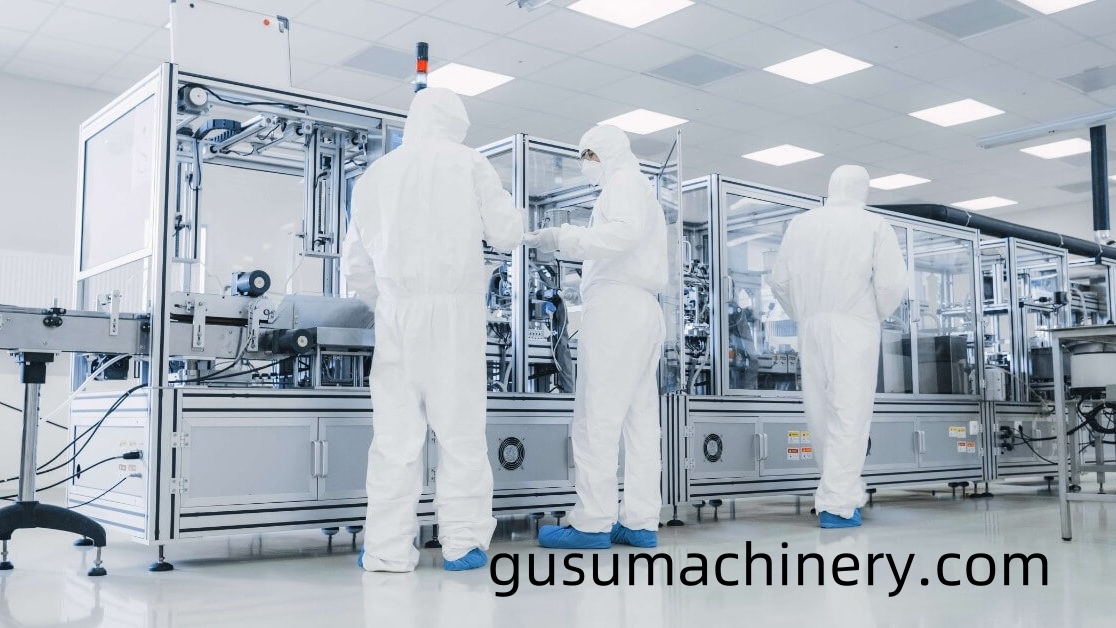How Gusumachinery Ensures Full Compliance with Food Safety Regulations

Food safety compliance is a critical aspect of the food manufacturing industry. Food machines play a vital role in maintaining strict hygiene and safety standards throughout production processes. These machines are designed with features that prevent contamination, ensure consistency in food quality, and reduce human error. By using advanced technology and strict design specifications, food machines help manufacturers meet food safety regulations set by health and safety authorities. Compliance to these standards is necessary not only for consumer protection but also for the protection of the brand’s reputation and long-term viability.
To guarantee compliance with food safety regulations, food machines are equipped with several built-in features. These features help prevent contamination, maintain cleanliness, and ensure accurate production standards. Many machines include automated cleaning systems, which ensure that every component of the machine is regularly sanitized. This is particularly important in high-risk environments where even the smallest residue can lead to contamination. Automated cleaning systems can be programmed to clean the machine at specific intervals, eliminating the need for manual cleaning, which can be error-prone and inconsistent.
In addition to automated cleaning systems, food machines are often made from materials that are resistant to bacteria, mold, and other contaminants. Stainless steel is a common material choice because of its durability and non-porous surface, making it harder for bacteria to thrive. Furthermore, some machines are designed to maintain a consistent temperature, which is crucial for ensuring food safety. These temperature-controlled systems reduce the risk of bacterial growth, particularly for perishable foods that need to be kept at specific temperatures to maintain freshness.
Furthermore, food machines can be programmed to monitor and control various factors, such as humidity, temperature, and cooking times, ensuring that food is processed in compliance with safety standards. This reduces the risk of undercooked or improperly handled food. Many modern machines also come with sensors that can detect abnormalities in the production process, alerting operators to any issues that may compromise food safety.
Additionally, these machines help ensure traceability, which is a key element in food safety. By recording every step of the production process, food manufacturers can trace a product’s journey from raw material to finished goods. In the event of a recall or contamination issue, manufacturers can quickly identify the source and take corrective actions, preventing further damage.
As food safety standards continue to evolve, food machines are also evolving to meet these new challenges. More manufacturers are adopting Industry 4.0 technologies, incorporating real-time monitoring, AI, and predictive maintenance into their machines. These innovations make it easier to comply with food safety regulations and improve overall production efficiency.
At Gusumachinery, we understand the importance of food safety compliance and are committed to providing high-quality food machines that meet the latest industry standards. Our equipment is designed with both safety and efficiency in mind, helping businesses streamline their production processes while ensuring their products are safe for consumers. Visit www.gusumachinery.com to learn more about our advanced food machines and how we can assist you in maintaining strict food safety protocols.

- Art
- Causes
- Crafts
- Dance
- Drinks
- Film
- Fitness
- Food
- Juegos
- Gardening
- Health
- Home
- Literature
- Music
- Networking
- Other
- Party
- Religion
- Shopping
- Sports
- Theater
- Wellness


